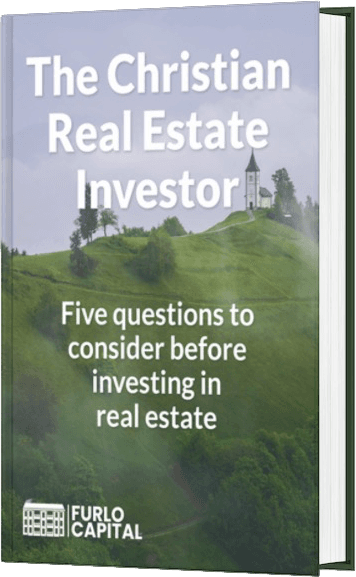
Are you a Christian thinking about passively investing in real estate?
When talking with Christians, I get similar questions about passive investing and how it relates to their faith. I appreciate the heartfelt questions, and to help answer them, I wrote a free eBook. Here are the five questions:
- 1
When is enough money, enough?
- 2
How do I avoid loving money?
- 3
Does real estate investing conflict with biblical warnings on debt?
- 4
Does relying on passive investments go against biblical principles on hard work?
- 5
Is it morally wrong to profit from the housing needs of others?
Get your free PDF book
By entering your info, you'll also join the Furlo Capital Investor Club - with private investment opportunities, exclusive market updates, principles for passively investing in syndications, and behind-the-scenes insights.
Let's build your wealth and improve housing, together
Passive Income
Tenants pay monthly rent, which covers expenses and generates a profit for investors. Plus, multifamilies appreciate and usually sell for a significant profit.
Consistent Above-Average Returns
Real estate is less volatile and historically outperformed the S&P 500 by routinely generating average annual returns of at least 10% after fees, inflation, and taxes.
Revitalize Local Communities
We give people a great, safe place to call home. This doesn’t hit the spreadsheet, but every property is managed and maintained with the residents as a top priority.
Extraordinary Tax Benefits
Your income is taxed much lower because of depreciation and because it’s taxed at a lower capital gains rate.
Below-Average Risk
More units mean less vacancy sensitivity. Plus, costs are distributed across a larger number of units, which also allows us to hire a professional property manager.
Leverage
Unlike stocks, lenders like to finance multifamilies and the loans are tied to the property, not the person. This accelerates wealth building.
